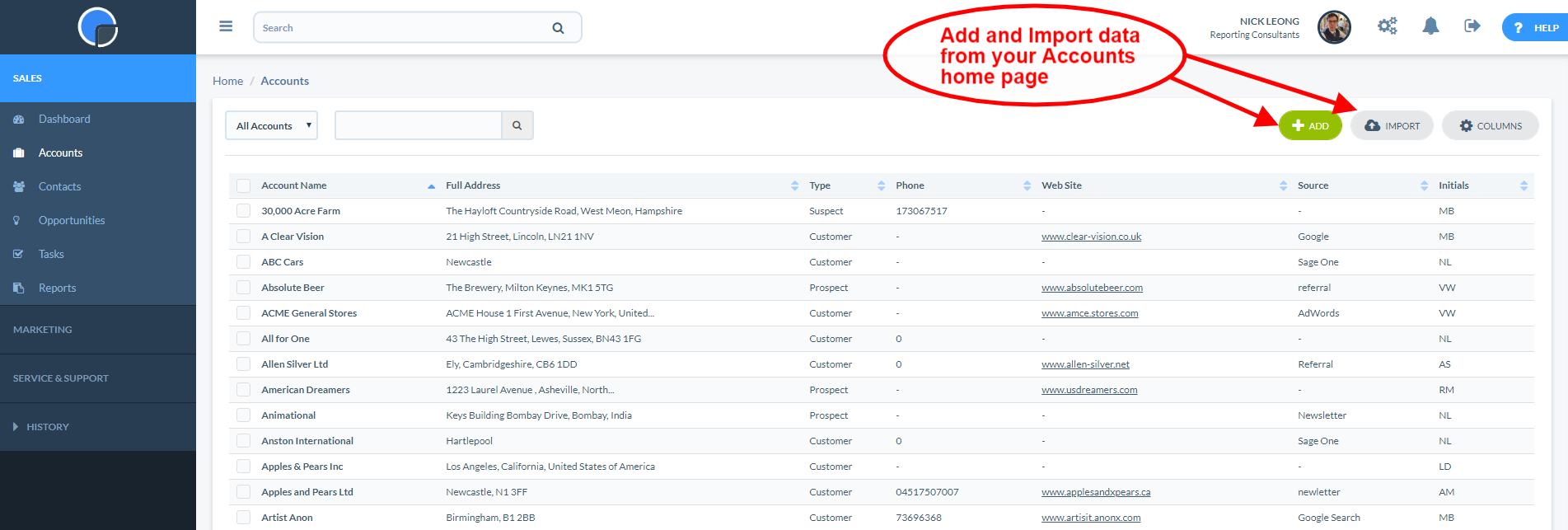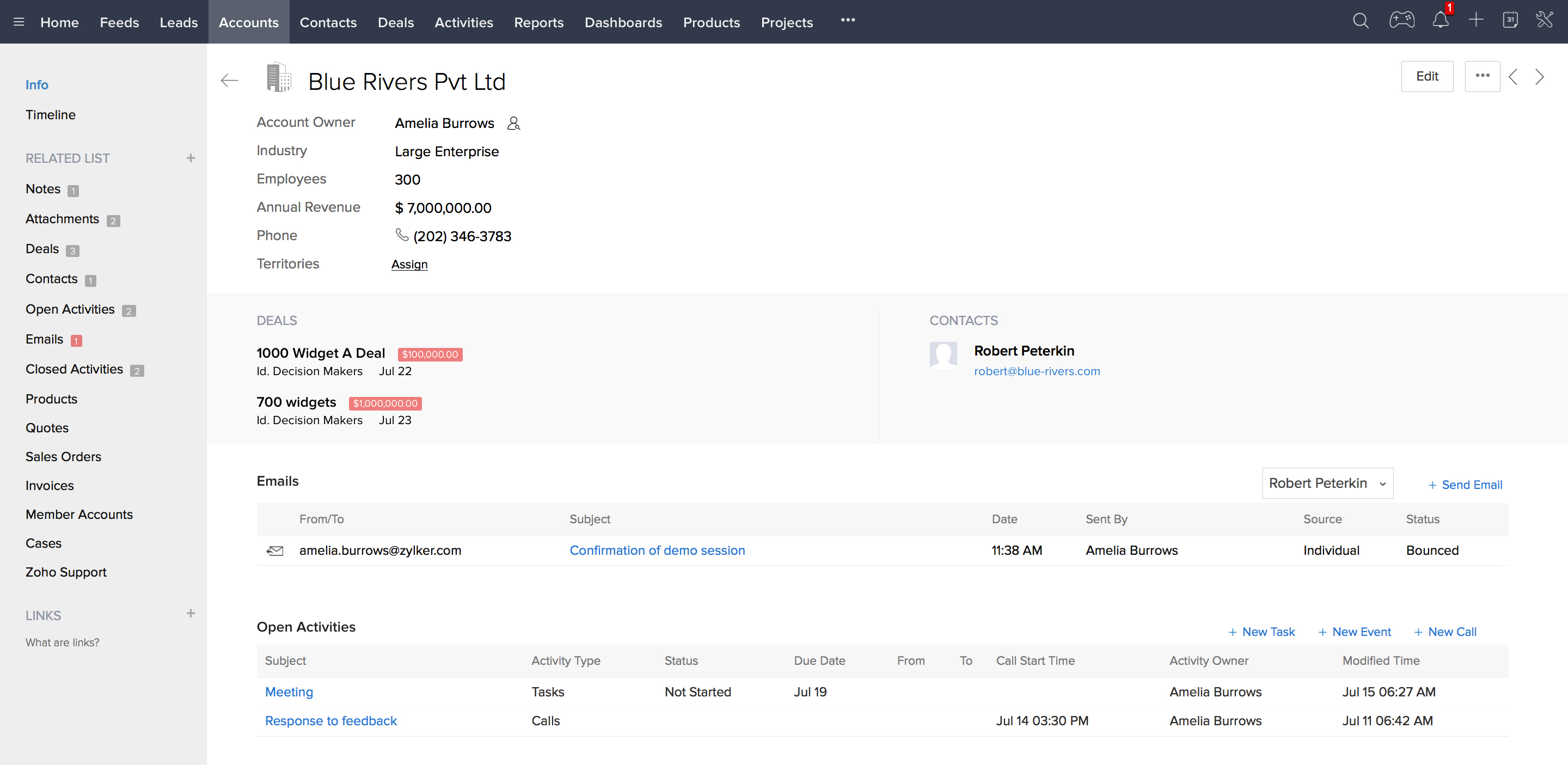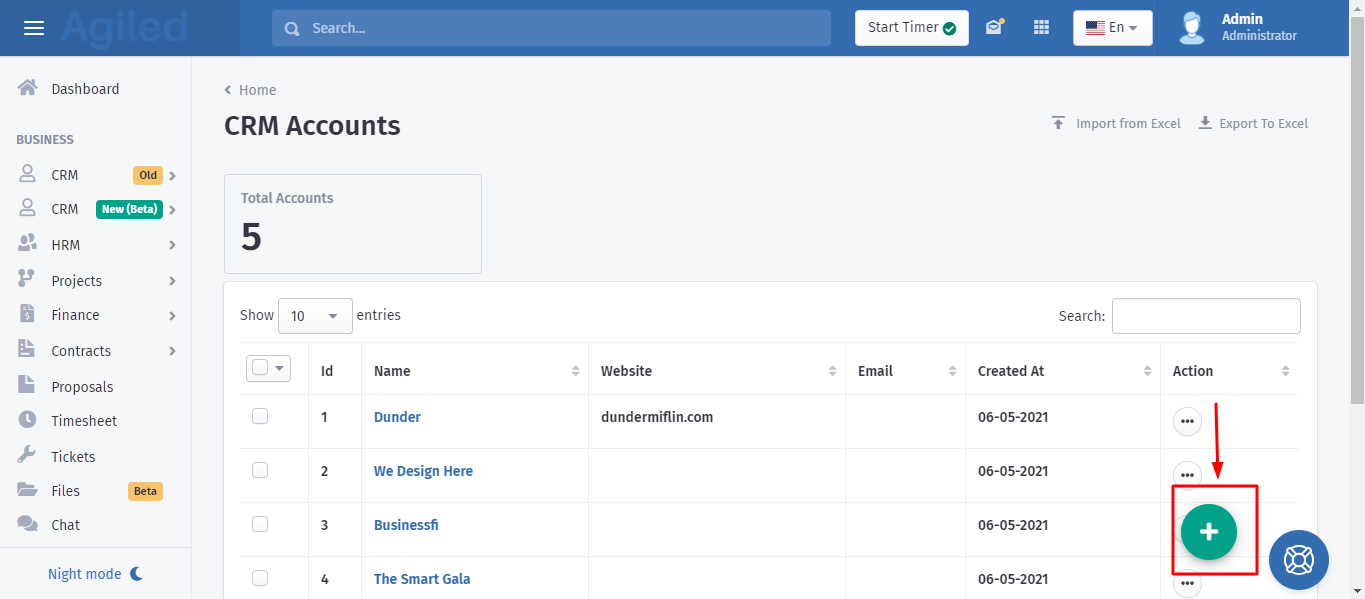crm account essentials for smart customer management introduces you to the core of how businesses keep customer data organized, accessible, and actionable. Whether you’re managing a small client base or handling thousands of accounts, understanding how to leverage a crm account can dramatically boost your team’s efficiency and customer satisfaction.
A crm account isn’t just a database—it’s a dynamic hub where every interaction, preference, and data point about your customers comes together. These accounts store critical details like contact information, communication history, segmentation tags, and custom notes. Modern crm systems also offer advanced features like automated workflows, customizable fields, robust integration capabilities, and granular security controls, making them invaluable for companies in any sector looking to build lasting customer relationships.
Overview of CRM Account

A CRM (Customer Relationship Management) account serves as the cornerstone of modern business operations, providing a centralized repository for maintaining and analyzing every interaction with customers or business partners. The primary purpose of a CRM account is to store, organize, and facilitate the management of all data related to clients, prospects, and accounts, enabling organizations to deliver personalized experiences and improve overall efficiency.
Within a CRM environment, the account profile acts as the digital identity for any individual or company the business interacts with. This profile includes a wide array of information, ranging from basic contact details to detailed records of communication history, purchase behavior, and support requests.
Key Data Stored in CRM Account Profiles
Each CRM account profile is designed to capture a comprehensive set of information that helps businesses understand and anticipate client needs. The typical data fields found in CRM accounts include the following:
- Full company or individual contact information (address, phone, email, website)
- Account owner and assigned team members
- History of interactions (calls, meetings, emails, and notes)
- Opportunities, deals, and sales pipeline stage
- Service and support tickets
- Custom fields specific to industry or organizational needs
- Tags, categories, and segmentation data
Storing this information within a single system eliminates data silos and ensures that every relevant team member has access to up-to-date, actionable insights.
Significance of CRM Accounts in Customer Relationship Management
The effective management of CRM accounts fundamentally transforms how businesses interact with their customers. By providing a unified view of each account, organizations can personalize outreach, resolve issues faster, and identify new sales opportunities. This holistic approach not only boosts customer satisfaction but also enables teams to collaborate more efficiently, leading to increased retention rates and long-term revenue growth.
Features and Functionalities of CRM Accounts
CRM accounts are equipped with a diverse array of features to meet the evolving needs of businesses, from simple data tracking to sophisticated automation and analytics. These features are designed to streamline workflows, enhance user experience, and ensure that every interaction is captured for future reference.
Essential Features of CRM Accounts
Modern CRM account modules are packed with core features that form the backbone of effective relationship management. Here are the essentials:
- Contact, company, and relationship management
- Task and event scheduling
- Email integration and communication tracking
- Document and file storage
- Activity logging and audit trails
- Lead and opportunity management
- Reporting dashboards and analytics
- Integration with calendars and productivity tools
These functionalities ensure that teams stay organized and informed at every stage of the customer journey.
Advanced Functionalities in Modern CRM Accounts
As CRM technology evolves, advanced features are increasingly available, setting modern systems apart from their basic predecessors. These include:
- AI-driven recommendations for next-best actions
- Automated workflow triggers based on account activity
- Customizable notification and alert systems
- Advanced segmentation and dynamic group creation
- Omnichannel communication (SMS, chat, social media)
- Built-in marketing automation and campaign tracking
- Integration with customer support ticketing systems
Advanced capabilities empower organizations to scale their operations, personalize experiences, and gain predictive insights into account behavior.
Standard vs. Customizable Fields in CRM Modules
CRM systems typically offer a mix of standard and customizable fields to accommodate different business requirements. Standard fields include universally relevant data points such as name, email, and phone number, while customizable fields allow organizations to add unique information, like industry-specific identifiers or custom tags. This flexibility ensures that CRM accounts remain relevant regardless of how niche or specialized the business model may be.
Setup and Configuration Procedures
Establishing a new CRM account system requires a structured approach to ensure data integrity, user accessibility, and seamless organizational adoption. A well-executed setup streamlines onboarding and maximizes productivity from day one.
Key Steps in Setting Up a CRM Account
The setup process is multi-faceted, often involving collaboration between IT, management, and end-users. The following table lays out the primary steps, their descriptions, responsible parties, and estimated timeframes:
| Step | Description | Responsible Party | Estimated Time |
|---|---|---|---|
| System Requirement Analysis | Identify business needs and choose the appropriate CRM solution | Management/IT | 1-2 weeks |
| User Setup & Role Assignment | Create user accounts and assign roles with appropriate permissions | System Administrator | 2-3 days |
| Data Import | Migrate existing customer and account data into the CRM system | Data Analyst/IT | 1 week |
| Customization & Training | Configure fields/workflows and train team members on usage | CRM Consultant/Trainer | 1-2 weeks |
Configuring User Permissions and Access Controls
Proper configuration of user permissions is essential for data security and workflow efficiency. Most CRM platforms provide granular access controls, enabling admins to:
- Define access levels (view, edit, delete) for each module
- Segment data access based on teams, departments, or locations
- Set up approval processes for sensitive actions
- Monitor user activity and generate access logs
This ensures sensitive account data is only accessible to authorized personnel.
Best Practices for Initial Data Entry and Account Organization
Accurate initial data entry lays the foundation for effective CRM usage. Best practices include:
- Standardizing data formats (e.g., date, phone number, address)
- Using validation rules to minimize input errors
- Applying tags and categories consistently
- Mapping custom fields to business processes
- Conducting regular audits of imported data
Integration Capabilities with Other Systems
CRM accounts become exponentially more valuable when integrated with other business systems, creating a unified flow of information across the organization. Seamless integration reduces manual entry, increases data accuracy, and enhances the overall customer experience.
Methods of Integrating CRM Accounts with Third-Party Tools
Integrating CRM accounts with external platforms unlocks new levels of productivity and insight. Popular integration methods include:
- Native connectors provided by CRM vendors for common tools (e.g., Gmail, Outlook, Slack)
- API-based integrations for custom connections between systems
- Middleware platforms that facilitate data exchange (e.g., Zapier, MuleSoft)
- Webhooks for real-time data triggering and syncing
These methods cater to varying technical capabilities and specific business needs.
Popular CRM Integration Examples
The table below summarizes common integration scenarios, their types, key benefits, and notes on implementation:
| Tool | Integration Type | Key Benefits | Notes |
|---|---|---|---|
| Email Platforms (Gmail, Outlook) | Native Connector/API | Centralizes communication, logs emails to accounts automatically | Requires account-level permissions |
| Telephony Systems (RingCentral, Twilio) | API/Webhook | Tracks call history, enables click-to-dial | Needs VoIP integration setup |
| Marketing Automation (Mailchimp, HubSpot) | API/Middleware | Syncs contact lists, triggers workflows based on account activity | Check for data field mapping consistency |
| Accounting Software (QuickBooks, Xero) | API | Links invoices and payment status to accounts | Requires secure authentication |
Ensuring Seamless Data Synchronization
To maintain data accuracy between CRM accounts and other systems, businesses should:
- Establish regular sync intervals (real-time or scheduled)
- Set conflict resolution rules for duplicate or mismatched data
- Test integration flows before full deployment
- Monitor sync logs and receive error alerts
- Update data mapping as business processes evolve
Managing and Segmenting CRM Accounts
Effective account management and segmentation are critical for delivering tailored experiences and maximizing the impact of sales and marketing efforts. By grouping accounts based on relevant criteria, businesses can ensure more targeted outreach and efficient workflow management.
Grouping CRM Accounts by Industry, Size, or Activity

Accounts can be segmented using a variety of attributes, enabling organizations to focus on specific market segments or customer profiles. Common grouping techniques involve:
- Industry vertical (e.g., healthcare, retail, technology)
- Company size (employee count, revenue range)
- Geographic location
- Engagement level or recent activity
- Deal stage in the sales pipeline
- Product or service purchased
This structured segmentation allows for more personalized campaigns and resource allocation.
Automated Workflows for Account Management

Automation plays a key role in maintaining account quality and responsiveness. Automated workflows available in modern CRM include:
- Lead assignment and routing based on account attributes
- Follow-up reminders for inactive accounts
- Triggering nurture campaigns for specific segments
- Escalation of high-value opportunities to management
- Generating tasks when accounts reach certain milestones
These automations reduce manual effort and ensure timely engagement.
Using Tags, Categories, and Custom Fields for Advanced Segmentation
Beyond standard segmentation fields, the use of tags, categories, and custom fields provides a flexible approach for tracking nuanced details. For example, tags can flag accounts with special requirements, categories can differentiate between partner and customer accounts, and custom fields can capture industry-specific data such as license numbers or compliance statuses. This granular segmentation supports hyper-personalized communication and reporting.
Security and Data Privacy in CRM Accounts
Security and data privacy are paramount concerns in CRM account management, as sensitive customer and business data are at risk from both internal and external threats. A robust security posture not only protects valuable information but also builds trust with clients.
Primary Security Risks in CRM Account Storage and Access
The most prominent risks associated with CRM accounts include:
- Unauthorized access to sensitive data by internal or external actors
- Data breaches due to compromised credentials or vulnerabilities
- Accidental data loss or corruption during migration or updates
- Insufficient audit trails for monitoring user activity
- Non-compliance with data protection regulations (e.g., GDPR, CCPA)
Recognizing these risks is the first step towards establishing effective countermeasures.
Standard Security Measures and Protocols, Crm account
To address these threats, businesses implement a range of security controls, including:
- Role-based access controls and permission settings
- Two-factor authentication (2FA) for user logins
- Data encryption both in transit and at rest
- Regular security audits and vulnerability testing
- Comprehensive backup and disaster recovery plans
These protocols are widely recognized as best practice across industries.
Practical Security Solutions Table
Below is a table summarizing key security measures, their descriptions, implementation scale, and associated benefits:
| Security Measure | Description | Implementation Level | Benefit |
|---|---|---|---|
| Role-Based Access Control | Defines user access based on role or responsibility | System-wide | Reduces risk of unauthorized data access |
| Two-Factor Authentication | Requires additional verification for logins | User-level | Prevents account compromise from stolen credentials |
| Data Encryption | Secures data during transfer and storage | Database/Network | Protects sensitive information from interception |
| Audit Trails | Logs all user activity and changes | System-wide | Enables detection and investigation of suspicious actions |
| Regular Backups | Maintains copies of data for recovery | System-wide | Ensures business continuity in case of data loss |
Practical Use Cases and Industry Applications
CRM accounts are versatile tools that drive value across different industries, adapting to unique business requirements and objectives. Their flexibility and customizability make them indispensable for organizations seeking to enhance customer engagement and streamline operations.
Industry Examples and Business Objectives
Various industries leverage CRM accounts to address industry-specific challenges and goals. The table below highlights these applications:
| Industry | Business Goal | CRM Account Usage | Outcome |
|---|---|---|---|
| Retail | Increase customer loyalty | Track purchase history and personalize promotions | Higher repeat purchase rates |
| Healthcare | Enhance patient experience | Centralize patient records and appointment scheduling | Improved appointment adherence and satisfaction |
| Financial Services | Strengthen client relationships | Monitor client portfolios and communication logs | Increased cross-selling and retention |
| Manufacturing | Improve partner collaboration | Manage distributor and supplier accounts | Streamlined supply chain operations |
Customization Approaches for Industry Needs
CRM accounts can be tailored using custom fields, workflows, and dashboards to match the unique demands of each industry. For example, a healthcare provider might integrate appointment reminders and HIPAA compliance checks, while a software company could embed product usage analytics and automated renewal notices. These customizations ensure that CRM accounts are not only repositories of information but also active participants in key business processes.
Last Recap
Wrapping up, crm account management is a cornerstone for any business aiming for growth and deeper customer engagement. By taking advantage of its features, integration options, and security measures, you’re well-equipped to create tailored experiences, gain valuable insights, and stay ahead in today’s competitive landscape. With the right crm account setup, the possibilities for improving your customer relationships are nearly limitless.
Popular Questions
What is a crm account?
A crm account is a digital profile within a customer relationship management system that stores and organizes all key information related to a specific customer or business client.
How does a crm account differ from a regular contact record?
A crm account aggregates multiple contacts, activities, sales opportunities, and interactions under a single client or organization, while a contact record typically refers to an individual person.
Can I customize the fields in my crm account?
Yes, most modern crm solutions let you customize account fields to fit your specific business needs, adding custom data points beyond the standard options.
Is it possible to automate tasks within a crm account?
Absolutely. You can set up automated workflows for follow-ups, data updates, notifications, and more to streamline processes and reduce manual work.
Are crm accounts suitable for small businesses?
Yes, crm accounts scale well for businesses of all sizes, providing essential tools for managing customer data, tracking interactions, and improving sales efficiency.
